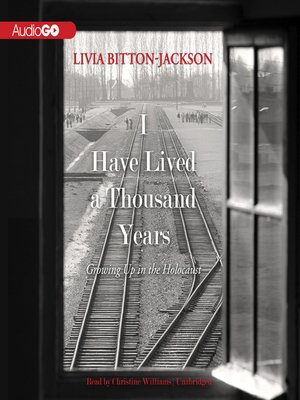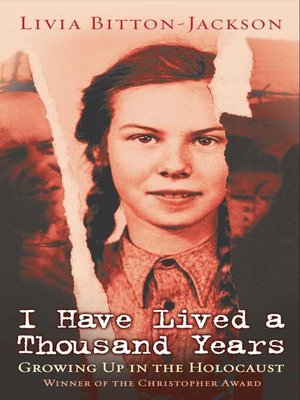


But these adolescent daydreams quickly darken in March 1944, when the Nazis invade Hungary. A life in which Elli could lie and daydream for hours that she was a beautiful and elegant celebrated poet. An exceptional story, exceptionally well told. It wasn’t long ago that Elli led a normal life that included family, friends, school, and thoughts about boys. Of particular interest is her relationship with her mother, who survived with her (in part because of the author's determination and bravery after an accident left her mother temporarily paralyzed). Her descriptions of Auschwitz and labor camps are brutal, frank and terrifying, all the more so because she keeps her observations personal and immediate, avoiding the sweeping rhetoric that has, understandably, become a staple of much Holocaust testimony. She relates, for example, how the yellow star made her feel marked and humiliated, reluctant to attend her school's graduation how existence in the ghetto, paradoxically, made her happy to be Jewish for the first time in her life how an aunt terrified the family by destroying their most valuable belongings before deportation, so that the Germans could not profit by them. She brings an artist's recall to childhood experiences, conveying them so as to stir fresh empathy in the target audience, even those well-versed in Holocaust literature. While the facts alone command attention, Bitton-Jackson's supple and measured writing would compel the reader even if applied to a less momentous subject. After a yearful of innumerable harrowing experiences, she was liberated. Bubi rends his and his sister’s garments when they learn of their father’s death and reminds her they must observe Jewish law by sitting shiva.Born in a small farming town in Hungary, Bitton-Jackson was 13 when Nazis forced her and her family into a Jewish ghetto and then sent them to Auschwitz. After Beth’s sisters are killed during an Allied bombing, Laura reminds her of the Hebrew date of her sisters’ deaths. Britton-Jackson observes fasts for both Yom Kippur and Passover, despite the physical risks in her malnourished condition. A remarkable memoir, I Have Lived a Thousand Years is a story of cruelty and suffering, but at the same time a story of hope, faith, perseverance, and love. The night before authorities transport him to a labor camp, he studies the Talmud with Bubi and tells him to remember these passages when he thinks of his father in the future. After Markus’ business is shut down, he finds comfort reading the Talmud. Throughout the book, Britton-Jackson, her family, and her fellow Jewish inmates find solace in their faith and strive to observe its laws.

Sharing the fate of the Jewish people in the ghetto changes this, and she feels “happy to share this peculiar condition of Jewishness” (41). Prior to her experience in the ghetto, Bitton-Jackson says she had not considered whether she was proud to be Jewish.


 0 kommentar(er)
0 kommentar(er)
